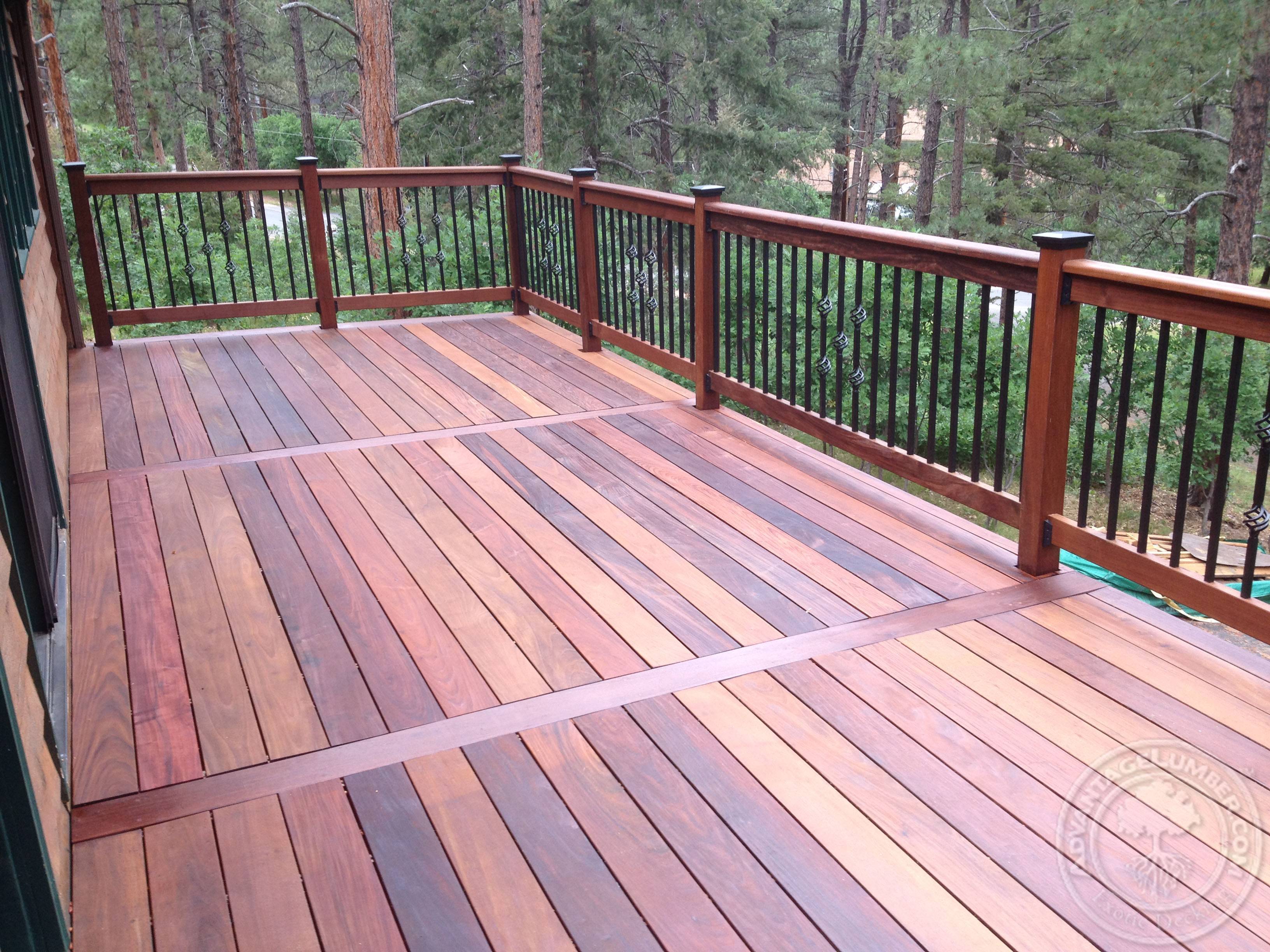A wood deck can be a beautiful and functional addition to any home, providing a space for outdoor entertainment, relaxation, and enjoyment. However, the lifespan of a wood deck can vary significantly depending on the type of wood used, the quality of construction, and the level of maintenance.
In this blog post, we’ll explore the expected lifespans of different types of wood decks, including softwoods like pressure-treated pine and cedar, as well as hardwoods such as Ipe, Cumaru, Tigerwood, Brazilian Redwood, and Mahogany.
Softwoods
Pressure-Treated Pine
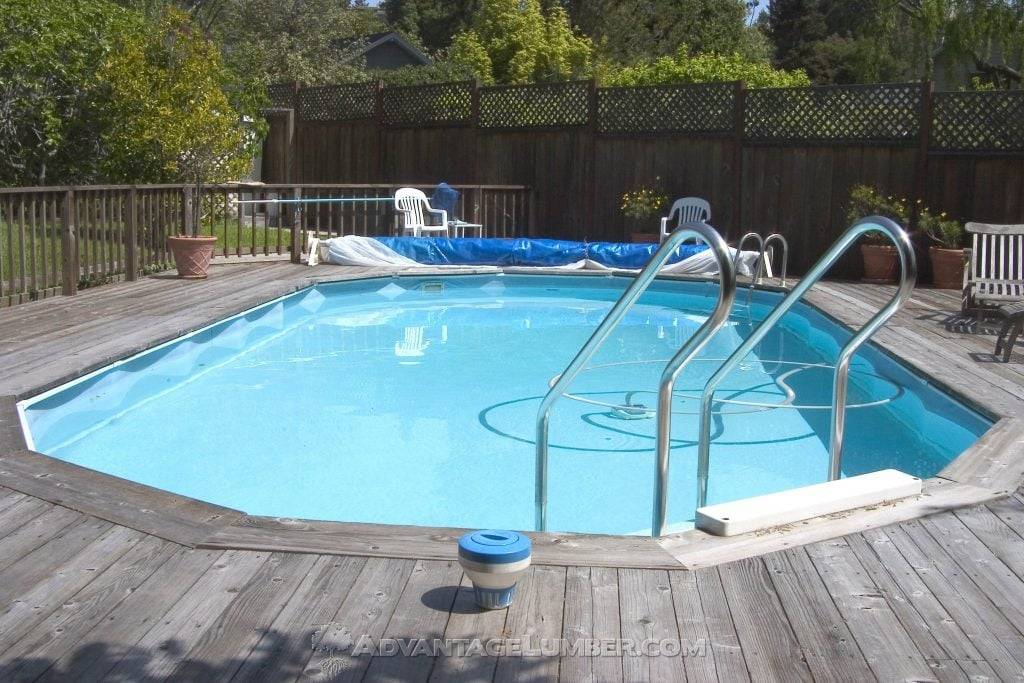
Pressure-treated pine is one of the most popular choices for wood decks due to its affordability and availability. This type of wood is treated with chemicals to resist rot, decay, and insect infestation. The lifespan of a pressure-treated pine deck can range from 10 to 20 years, depending on the level of maintenance. Regular cleaning, staining, and sealing can help extend its lifespan.
Cedar
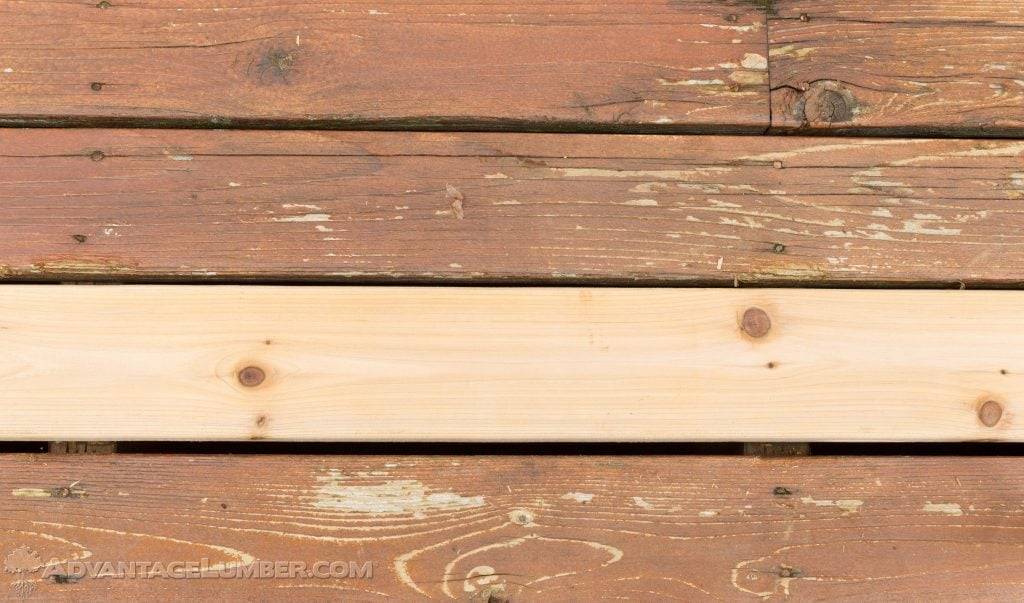
Cedar is another popular choice for decking material, known for its natural beauty and resistance to decay and insects. A well-maintained cedar deck can last between 15 and 25 years. Cedar requires regular maintenance, including cleaning and sealing, to preserve its color and protect it from the elements.
Hardwoods
Ipe
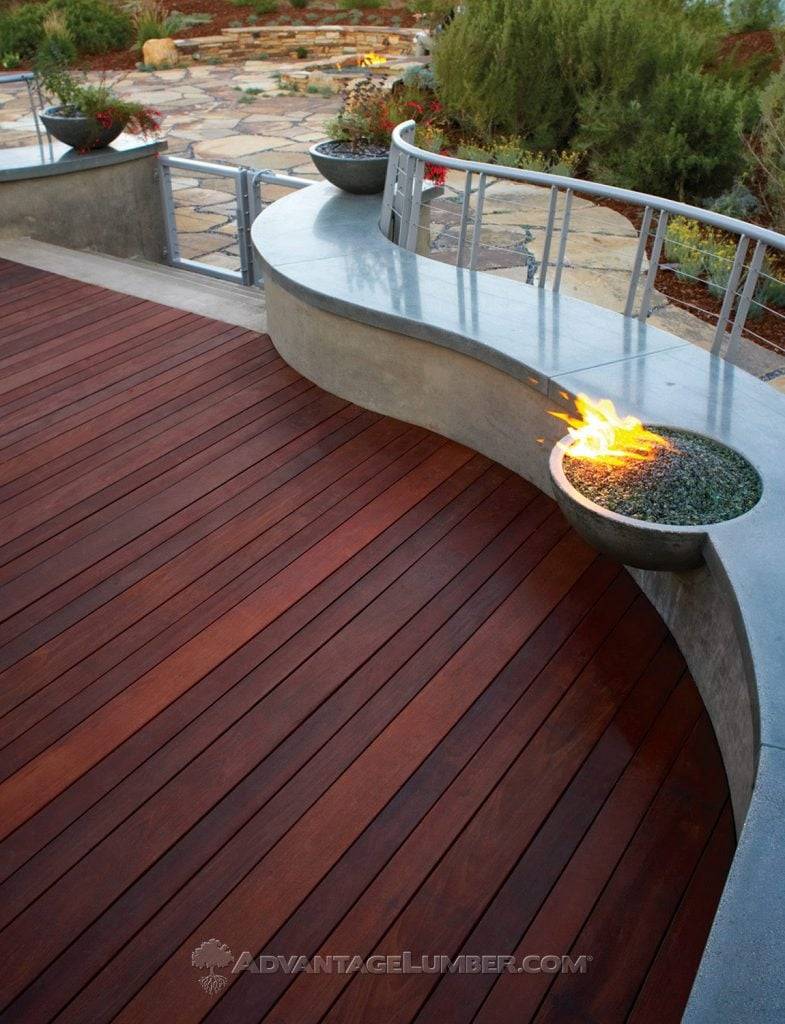
Ipe, also known as Brazilian Walnut, is a dense and durable hardwood that is highly resistant to rot, decay, and insect damage. An Ipe deck can last up to 75 years or even longer with proper care. It requires less maintenance than softer woods but should be periodically cleaned and oiled to maintain its rich color.
Cumaru
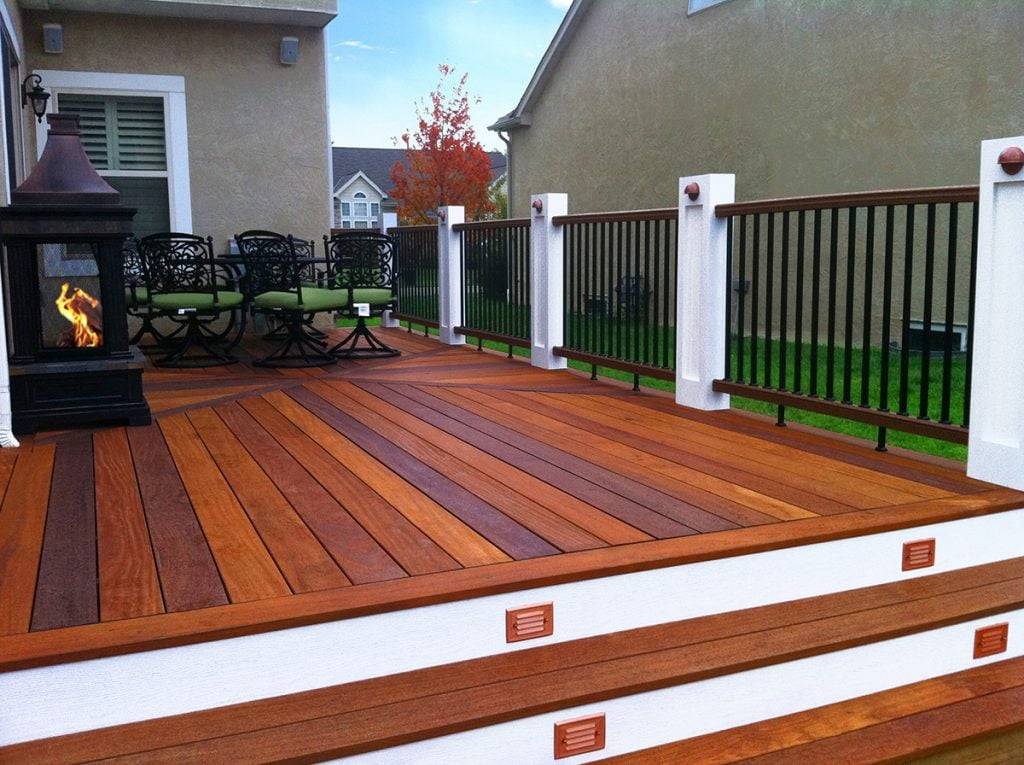
Cumaru, often referred to as Brazilian Teak, is another durable hardwood option for decking. Like Ipe, it is resistant to rot, decay, and insects. A Cumaru deck can last 50+ years with appropriate maintenance, including regular cleaning and oiling.
Tigerwood
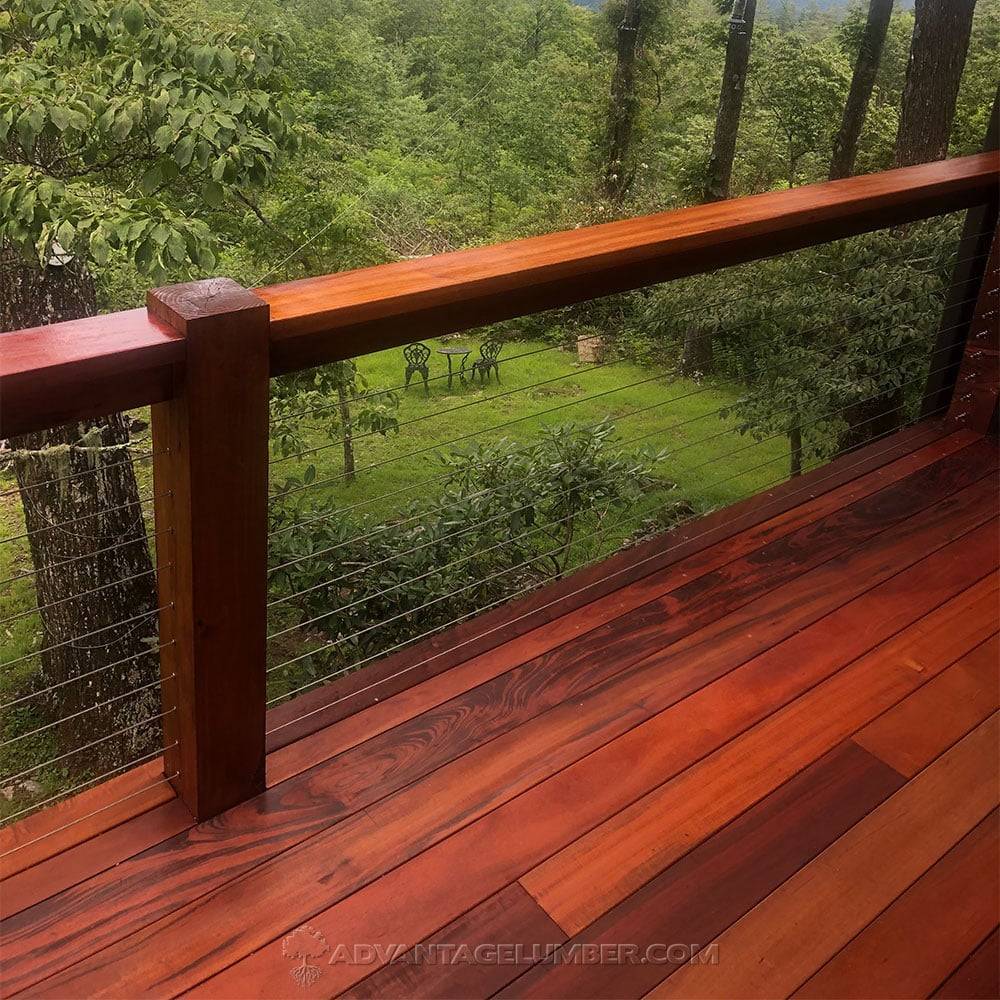
Tigerwood is known for its striking appearance and durability. It is resistant to rot, decay, and insects, making it a good choice for outdoor decking. With proper care, a Tigerwood deck can last 30+ years.
Brazilian Redwood
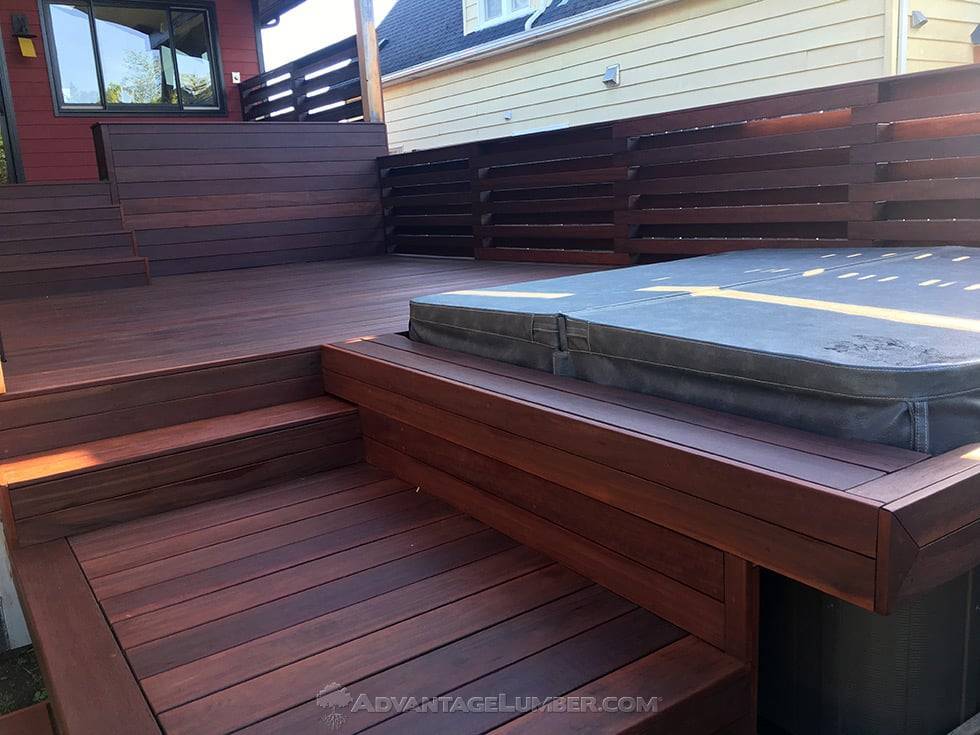
Brazilian Redwood, also known as Massaranduba, is a dense and durable hardwood that is resistant to rot and insect damage. A well-maintained Brazilian Redwood deck can last for 30 – 40 years. Regular cleaning and oiling are recommended to preserve its natural beauty.
Mahogany
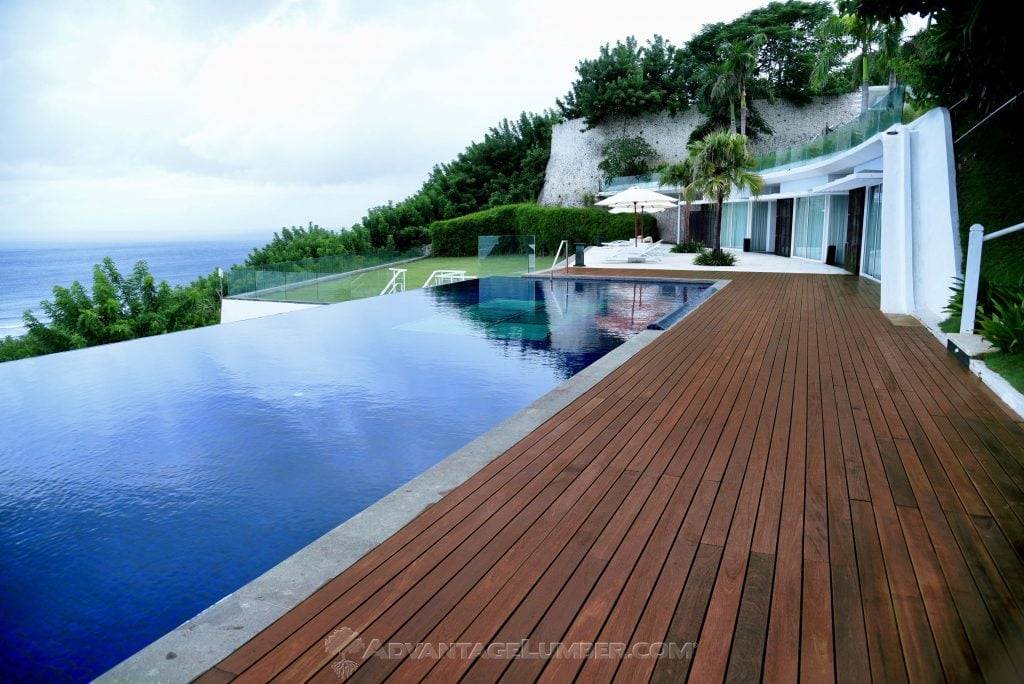
Mahogany is a premium hardwood that is prized for its beauty and durability. It is resistant to rot, decay, and insects, and with proper maintenance, a Mahogany deck can last for 25 to 30 years. Regular cleaning, staining, and sealing are necessary to protect the wood from the elements.
You can shop all of our hardwood decking directly online. We import direct, sell direct and ship direct to your home. Our pricing, quality and customer service can not be beat. Give us a call at 1-877-232-3915 or stop by one of our four warehouses located in the USA for help on your next project.
Conclusion
The lifespan of a wood deck can vary significantly depending on the type of wood used, the quality of construction, and the level of maintenance. Softwoods like pressure-treated pine and cedar can last for 10 to 20 years, while hardwoods like Ipe, Cumaru, Tigerwood, Brazilian Redwood, and Mahogany can last for 25 to 75 years or more. Regular maintenance, including cleaning, staining, and sealing, is essential to extend the lifespan of your wood deck and keep it looking beautiful for years to come.
